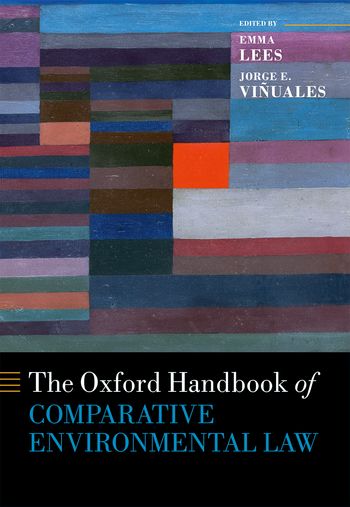We will be closed from 5pm Thursday 17th April for the Easter Bank Holidays, re-opening at 8.30am on Tuesday 22nd April. Any orders placed during this period will be processed when we re-open.

This Handbook is the first comprehensive account of comparative environmental law. It examines in detail the methodological foundations of the discipline as well as the substance of environmental law across countries from four vantage points: country studies from all continents, responses to common problems (including air pollution, water management, nature conservation, genetically modified organisms, climate change and energy, chemicals, waste), foundational components of environmental law systems (including principles, property rights, administrative and judicial organisation, command-and-control regulation, market mechanisms, informational techniques and liability mechanisms), and common interactions of environmental protection with the broader public, private, and criminal law contexts.
The volume brings together the foremost authorities in this field from around the world to provide a concise, self-contained, and technically rigorous account of environmental law as a single overall system.